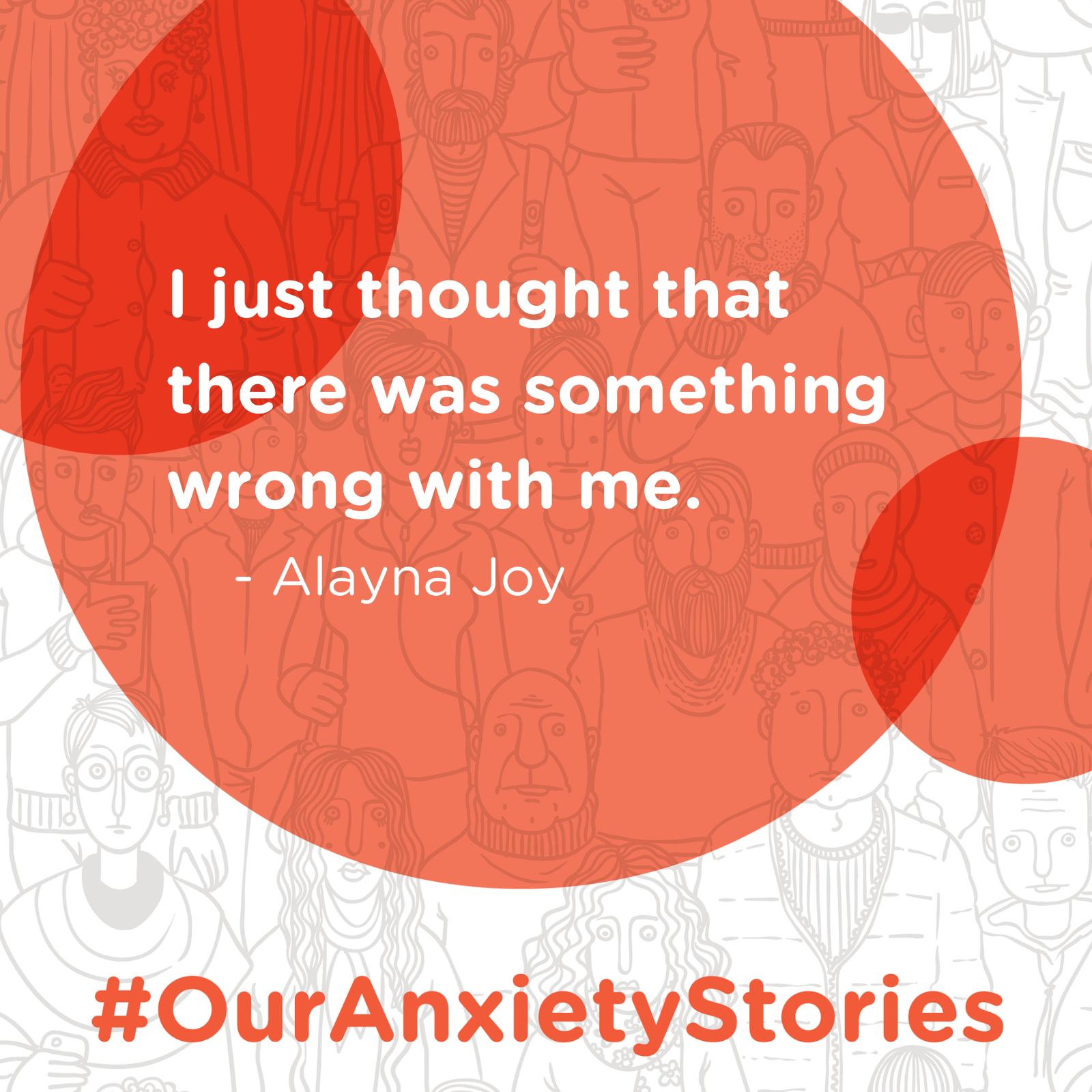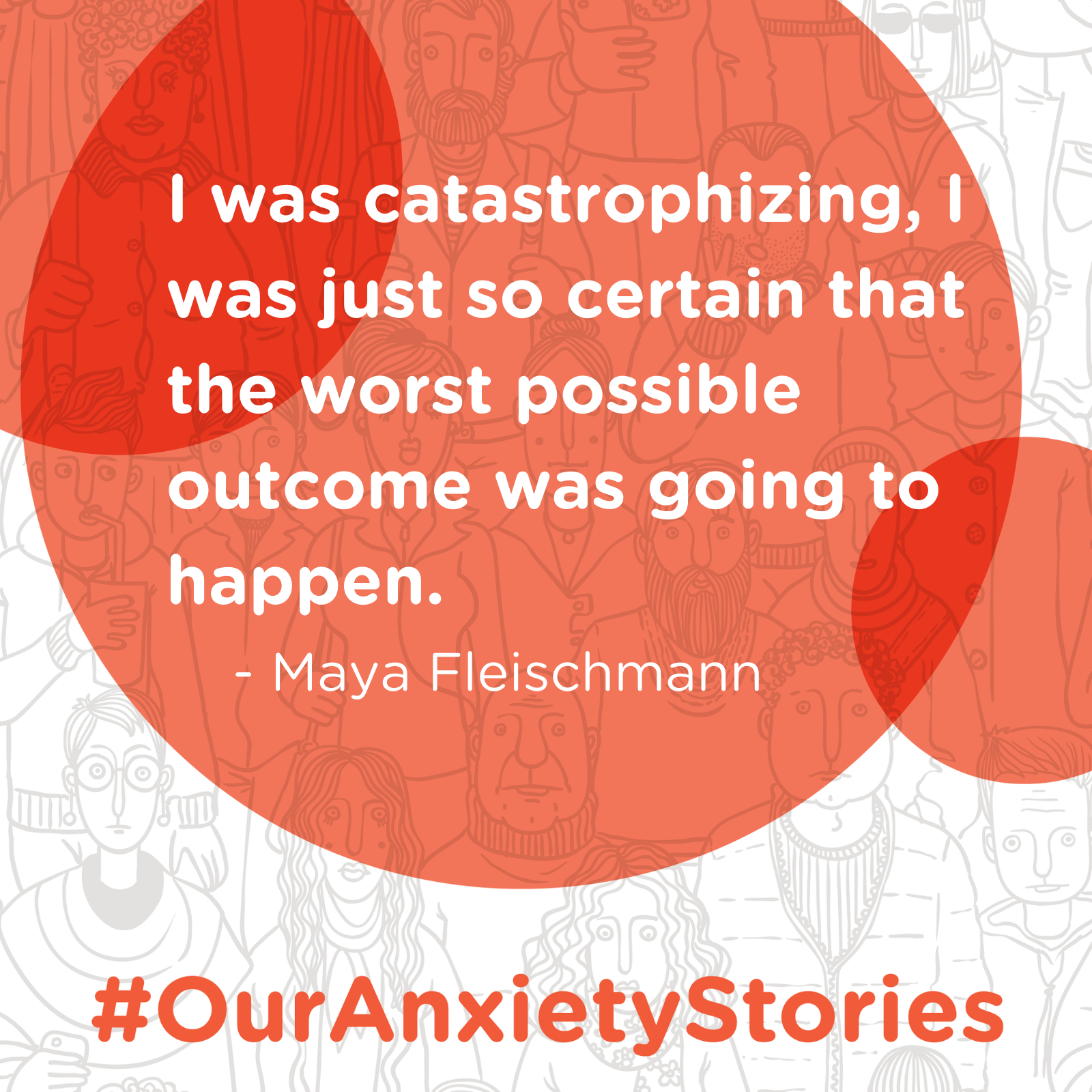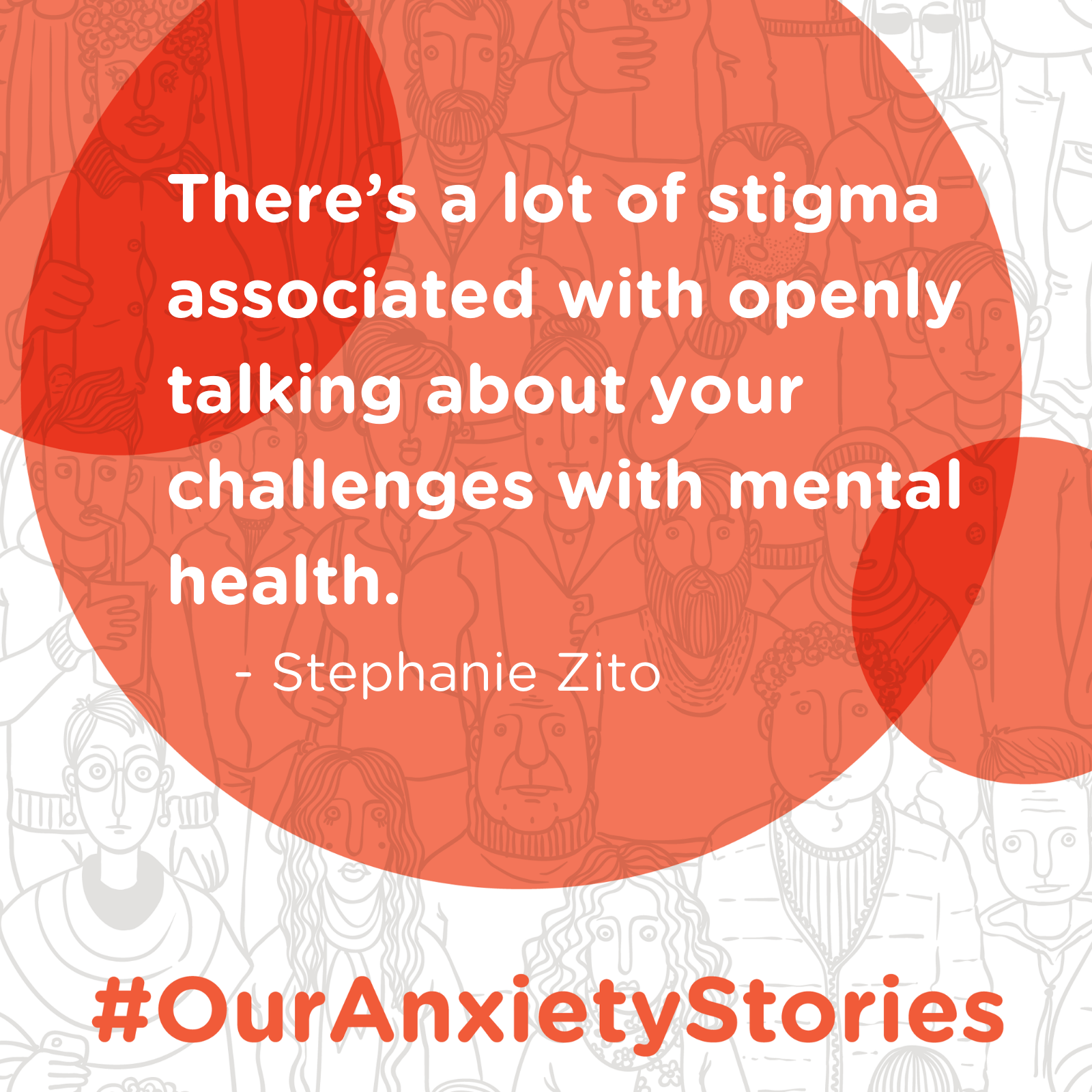Episode Transcript
Speaker 1 00:08 You are listening to our anxiety stories, the anxiety Canada podcast with John Bateman. Check out anxiety canada.com for more totally free anxiety resources, including our app Mindshift at CBT
Speaker 0 00:22 <inaudible>.
Speaker 2 00:26 My next guest here is Rosemarie young, who's an anxiety. Kennedy youth volunteer coordinator. Hi, Rose Marie Rose Marie or Rosemary. Rosemary. Okay. I'm doing fine. How are you doing? Good. Good, good, good. Um, tell me, uh, Rosemary, what's your anxiety story?
Speaker 3 00:48 Yeah. Um, so I'm 21 now. Uh, I've had anxiety for in different forms throughout most of my life. Uh, so when I was younger I did have a phobia of dogs. Um, and then, uh, when I was kind of a young preteen, I guess I did develop, uh, an eating disorder and then, um, but I'll, uh, my, uh, experiences with anxiety has kind of gone in waves. Um, and then it wasn't, uh, it was when I went to university. I'm in fourth year now that, um, I think I experienced my most difficult though with anxiety. So, um, because I kind of had considered myself an expert on anxiety by that time. Um, I didn't really recognize what I was going through. When I hit a second year, I got really scared. Um, so basically, um, currently I experienced, uh, intrusive thoughts when I get really stressed.
Speaker 3 01:49 So that's kind of on the spectrum of OCD. Um, but I had no idea what that was and I really, I experienced a lot of anxiety in relation to those thoughts. Um, and so yeah, just when I was kind of experiencing that for the first time, um, I just, yeah, I was struggling a lot and didn't really know what to do or how to overcome it cause they hadn't gone through that type of anxiety before. Um, so yeah, but I was ended up finding after like lots of support from friends, um, uh, psychologist that kind of helped me recognize and understand what it was and that, you know, it was normal or for what I had. And um, yeah. So I just use a CBT to kind of manage it and, yeah.
Speaker 2 02:38 Right. And where did you first learn about CBT as a tool for, for managing your anxiety?
Speaker 3 02:45 Um, yeah, I think I learned about it. Uh, first when I was actually going through the eating disorder, I had, uh, I remember seeing, um, a psychologist at, uh, a like an IWK, a clinic program that I was going through. And, uh, they did CBT with me and they actually also introduced me to the anxiety beefy website, um, to use as like a supplementary tool, which is now anxiety Canada. Yeah,
Speaker 2 03:15 yeah, yeah. And you, and you, do you use the mind shift app with anxiety Canada?
Speaker 3 03:21 Yeah, I do. Uh, uh, I use it once in awhile. Um, I liked the breathing techniques a lot. Um, and I think, uh, the component that allows you to like kind of go through your thoughts and challenge them and just take time to really, uh, thinking through is also a really good tool.
Speaker 2 03:40 <inaudible> tell me about your work with anxiety Canada as a youth volunteer coordinator. What's, what do you, what's that entail?
Speaker 3 03:48 Um, yeah, I just started actually a this summer, so basically, um, now I've kind of overcome a lot of, uh, the anxiety that I was, uh, just talking about. Um, so kind of being in a much better space. I was looking for, uh, an organization to kind of, to volunteer for, um, and kind of have an impact on campus as well, and just raise awareness about the different types of anxiety disorders. So, um, because I had heard about anxiety BC previously asserted, um, I looked on their website and they had a, an opportunity that they're just starting up called the national youth committee. Right. And so, um, what that is, is they're trying to develop a youth networks across Canada, um, to kind of create a youth volunteers, a network of youth volunteers that are ambassadors for anxiety Canada to raise awareness about the different types of anxiety disorders, um, to connect students and non-students to, uh, different resources. Um, and so yeah, I started as a member on the youth committees, so that's kind of helping build out those national network, the national network. And then, um, I just became along with the other Colita, I'm a youth volunteer coordinator, so that's just, um, leading, I guess, helping lead the effort of building out these nationally, the national youth network.
Speaker 2 05:19 Right. And is that, do you find that a challenge in terms of, you know, you're probably, I think you might be one of the younger people I've spoken to today. Um, you know, uh, and so I guess, you know, I have a lot of curiosity about your age and about how, you know, your, your, your generation and your peers, how you are open about anxiety or not open about our mental health. Um, you know, uh, if you could enlighten me a little bit on where you guys are, where, where you guys, where your generation, whatever that label is on your generation. I don't know what you guy, what you are, is it something that is prevalent, uh, in, in your peer groups, people you know, that, that people talk about mental disorders, uh, or is it, are people still pretty quiet? How does that, how's that working?
Speaker 3 06:05 Yeah, that's a really good question. Um, I think, uh, anxiety, like speaking generally anxiety and mental health and depression are almost, um, they're pretty much talked about, uh, pretty regularly I'd say. And at least in my peer groups. Um, but the thing is a specific anxiety disorders and kind of things outside of the normal, heightened stress and what you normally expect of anxiety and depression, they aren't really talked about. Right. Um, so for example, if someone going through something that might not fit into what you typically hear in media, um, about depression or anxiety, you wouldn't know what you're going, what you were going through because those really aren't, um, I find personally, uh, advertised or talked about in a lot of the mental health initiatives you see either on campus, um, or in like youth, uh, initiatives. And so I think that's a really big thing that needs to be more talked about and normalized. And, um, just, I think it's important for us, like as youth to be really educated about like the wide, um, range of mental health and anxiety challenges that exist. Yeah.
Speaker 2 07:26 Yeah. It's w w a question that, that has come up with me with some other guests and, and that I think about, I've got a daughter who is 17, and I've got a brother who's 14, and, um, you know, they're both very wired. Um, they both have their devices in your, yours is really the first generation to grow up with these things kind of attached T to your person. Um, and I don't mean that in a derogatory sense. I mean, they are, they are part of your, of who you are. That's, that's just part of your gear. Um, and you know, I guess I'm wondering, you know, with within that how much, you know, T do you feel that that is a, is there a pro effective of that of, you know, this everybody be able to connect with everybody all the time? Or is there a con effect when it comes to, uh, you know, mental health, you know, because on the one hand you hear about cyber bullying and exclusion and all that kind of thing. Um, I can't really speak to all the different apps for using the other hand. You hear about it using, being used to communicate with one another. In your experience, um, how has technology affected, affected your, uh, you know, your view of mental health, uh, mental health issues?
Speaker 3 08:28 Hmm. Um, I think for me it's done a bit of both. Like I've seen two sides of it, the really positive side. Um, in terms of advocacy, like, uh, in the circles that I run in and the people that I kind of follow on my social media yet I think there's a lot of advocates of kind of, uh, mental health issues and just in general, people are pretty open, which I think is good because for me at least, and I think for some others that I know, um, it helps normalize it in the sense that, um, you feel like what you're going through, um, is relatable and that's important because then you don't feel so isolated. Um, but at the same time, uh, social media and just phones in and other technology in general, um, I think can be kind of problematic. Um, when you, because it's so hard not to compare yourself to the people that you follow and the people that you're connected with. Then I think in terms of comparing your life to theirs, I think that for me at least, that has been the source of anxiety. Yeah.
Speaker 2 09:41 Well, I think what people have to realize with that, because I experienced it too, you know, Facebook, I'm Facebook generation. I mean I'm assuming you're more, which is an old, we're like, we're an antiquated generation, but my daughter's is definitely a Snapchat, you know, those ones. Um, but, you know, of course I, I'd see what, what friend's posts and what they're doing and there's the, the voice, the negative voice that happens. It's so quiet, um, within me, but it's so damaging and I don't know, I can realize that I'm older. I, you know, I can shut it down. Do you think kids are understanding that, that there is that voice, that maybe the a window, even though they don't hear it, it is still speaking to them? Do you think they know that that's happening?
Speaker 3 10:29 Hmm. No, I'm not sure. Um, I think I would like to think a lot of people do, but I feel like there is, especially people younger, younger than me, um, don't necessarily, may not necessarily have that voice because even it's what they've grown up with from an even younger age. Um, and so I think, yeah, there needs to be definitely an education piece, um, from either the, uh, social media networks themselves or just, um, schools, um, on how kind of social media or other forms of technology can feed into mental health issues and that, um, it's important to it. It's all, it can be. It is really fun to look at what your peers are doing, but, um, it's not, everything in social media isn't necessarily the represented, uh, doesn't necessarily represent the reality of the people that you see live. So that's just an important perspective to have.
Speaker 2 11:36 Yeah. Yeah. Do you, uh, just a quick question. We've got about 30 seconds to a minute left, but that's okay. Just one question. Um, how do you feel the, you know, your social interactions with your friends, um, on, on, uh, you know, over your devices versus in real life. Do you feel like it's a substitute for one or do you feel like that real life interaction is still kind of the way to go?
Speaker 3 12:02 I definitely feel like real life interaction is still the way to go. Um, and I like being able to connect with my friends over at texts, social media because, uh, we can support each other even one more far away. But, uh, nothing replaces like our in person, uh, ketchup, some connections I think.
Speaker 2 12:20 Yeah. Um, uh, Rosemary, I really appreciate you calling in. Um, you know, somebody of your age to, um, it makes a huge difference and it makes a huge difference to everybody out there. People who are your age, who may be listening to understand that there's resources here, that there's people that are in their peer groups the same age as that are effected by it and who are working on it. So your voice is incredibly important. I really appreciate you being on with me today.
Speaker 1 12:46 Well, thank you so much for having me. Okay, anytime. Take care, Rosemary. Bye. Bye. Thanks for listening to our anxiety stories, the anxiety Canada podcast with John Beekman, checkout anxiety canada.com for more anxiety resources, including our app Mindshift CBT. And if you like what you hear, please consider making a donation. This podcast is made possible by listeners like you. Until next time
Speaker 0 13:13 <inaudible>.


